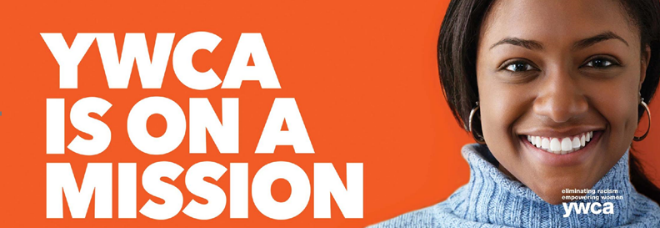
Each year, YWCA Madison hosts a Racial Justice Summit that brings together people and organizations committed to learning about institutional racism as well as to build an ongoing practice of racial justice. (See YWCA website.)
On October 15 and 16, four employees from the Office of Human Resources attended the 18th annual 2019 YWCA Racial Justice Summit.
Why did you attend?
“The Summit offered extensive learning, resources, networking opportunities, and intentional space to examine how OHR EID practices can transform my work and partnerships across campus.”
“I attended the summit to continue my learning around racial equity and explore how racial equity shows up for me and my work on campus.”
“As a white person, I recognize that the systems we’re living and breathing were designed for people like me—it’s imperative that I keep learning to inform my practice.”
What did you learn—and why is this learning important for our work in HR?
Caitlin: I attended Dr. Alexander Gee’s third session of Justified Anger, Mobilizing Greater Madison for Change, to educate myself on racial disparities prevalent in Madison. Justified Anger educates Madisonians on United States history and teaches us how to recognize and reduce racist behaviors and thought patterns.
Dr. Gee spoke about his daughter’s experiences of being told she missed the deadline to submit her National Honor Society application, only to find out this wasn’t true. Counselors told her—without looking at her grades—that she wouldn’t get in to UW–Madison so she “shouldn’t bother applying.” Once accepted, she doubted herself because of these harmful racial microaggressions.
A woman of color and I spoke during the small group sharing portion of the session. When she learned what I do in OHR, she asked if there were any people of color in my workplace. She shared that during her time as a UW student, the leaders of her students of color student organizations didn’t stay in leadership roles long because it was so difficult to make progress in their social justice work. She attributed this to bureaucratic barriers.
As HR professionals, we need to do better in creating an inclusive environment so that UW can attract a retain a diverse and talented workforce.
Sarah: The summit-opener really moved me on a number of levels. Climbing PoeTree performed When the Last Tree Stands Alone, naming the disparate impacts of climate change on marginalized peoples across the globe and inviting an awakening of the human spirt. The performance was emotionally-provocative, which got me thinking about the role of emotion and feelings in social justice—including in our workplaces. White culture teaches us to control our emotions and to lead with reason, a tendency that is certainly amplified in higher ed. This calls to mind Kenneth Jones and Tema Okun’s work on The Characteristics of White Supremacy Culture, particularly the prizing of ‘objectivity’. How might we make contact with our and others’ feelings in ways that can inform our action? And how do we face and navigate social justice issues holistically, beyond the tendency to ‘protect our own?’ Climbing PoeTree issued a powerful reminder that those of us who are most privileged are least hard-hit by social injustice—whether we’re talking global climate change or bias in the workplace. What are we who are privileged doing about that?
Susan: The second day of the summit, I participated in a ‘deep dive institute’ facilitated by Annahid Dashtgard. She focused on leadership development for folks of color, which looks very different than general leadership development programs and strategies. Without specific attention to the experience of folks of color, leadership development programs and efforts are—by default—for white folks. This is reflected in many of our formal leadership roles on campus, in the community, and in our country. As a young woman of color on campus, I’m very aware of how I present and show up in my professional spaces. The opportunity to connect with and learn from other working professionals of color, to unpack what leadership development means for people color, was validating and renewed my sense of determination to continue to navigate white work spaces, to challenge the status quo, and ultimately to continue the work.”
Tamie: The overall learning theme for me was how to create, cultivate and commit to a culture of belonging for all. Annahid Dashtgard identified unmet/unacknowledged emotions as the biggest barrier to inclusion and belonging. She facilitated an interrogation of our own emotional history around a time when we felt included and when we knew we were being excluded.
“Micro-signals” can help us to assess our own efforts to cultivate a culture of belonging. For example:
- Who do I greet first?
- Who do I talk to the longest?
- Whose opinions do I ask for and listen to?
- Who do I find more amenable?
- Whose grief do I tune into and make space for?
- Who do I gravitate to towards more easily?
Taking time to notice these micro-signals and the emotions that come up with them offers us information about our habits and patterns that may, or may not, cultivate the inclusion we seek in our relationships and organizations.
To learn more about the Summit, contact Caitlin Riechers, Sarah Carroll, Susan Tran Degrand, or Tamie Klumpyan. You can also read more about prior Summits in the HR CoP Newsletter Archives: